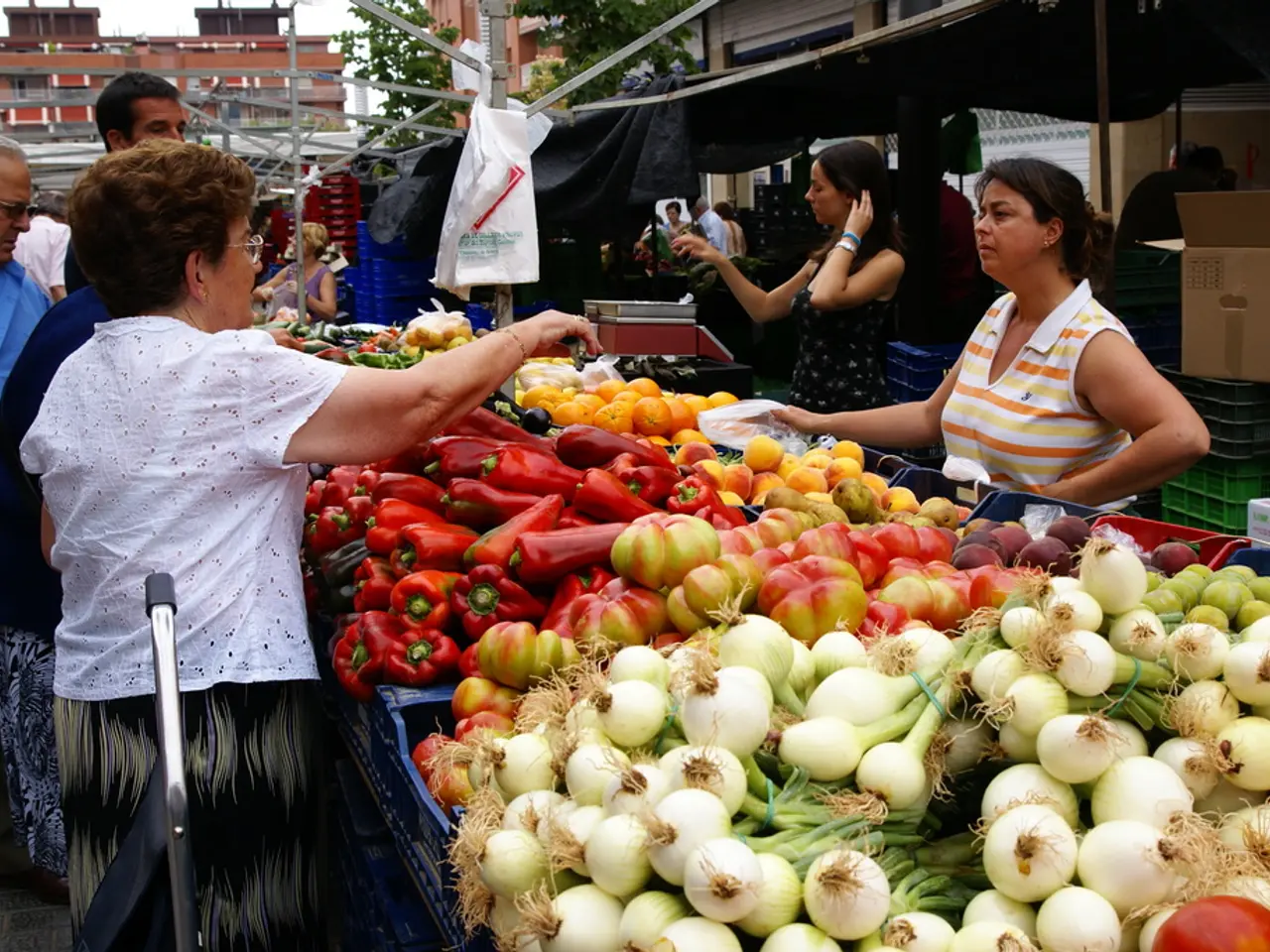Uncovered: Deception in Plastic Recycling as Recycled Plastics Prove More Toxic Than Freshly Manufactured Ones
In the realm of food packaging, the use of recycled plastics has become increasingly popular, with major brands like Cadbury, Coca-Cola, and General Mills adopting this eco-friendly approach. This shift towards sustainability is further supported by major petrochemical companies such as DuPont, Eastman Chemicals, and Indorama, as well as packaging manufacturers from China and India, all of whom have received approval from the Food and Drug Administration (FDA) to use recycled plastics in their packaging.
However, the safety of these recycled plastics in food contact is a complex issue. Recycling plastics, particularly polyolefins, involves intricate challenges due to the variety of additives and the difficulty in distinguishing food-grade from non-food plastics during recycling. Advanced decontamination methods and technologies are essential to eliminate contaminants and ensure safety in compliance with regulatory standards such as those by the European Food Safety Authority (EFSA).
Strict regulations and limited supply are other significant factors. Food-grade recycled plastics must meet very high purity standards. Production involves costly sorting, washing, and approved processes, with only a small fraction of recycled plastics currently certified as food grade globally.
One of the primary concerns regarding the use of recycled plastics in food packaging is the potential for chemical contamination. Studies show that harmful plastic-related chemicals, including phthalates and bisphenols (endocrine disruptors), are widely found in foods, often migrating from packaging. These chemicals are linked to serious health effects such as cancer, diabetes, thyroid problems, reproductive issues, and developmental disorders. Regulatory limits are often outdated, and while some regions have started banning problematic chemicals, comprehensive federal regulations are lacking.
Exposure to toxic chemicals from plastics occurs via ingestion, inhalation, and skin contact. Particular concern exists for vulnerable populations like pregnant women and children. Long-term effects can span metabolic, reproductive, and neurological health.
While the safe use of recycled plastics in food packaging is possible and supported by ongoing research and regulatory frameworks, significant technological and regulatory challenges remain. Continuous improvements in recycling technologies, contaminant removal, and stricter oversight are crucial to minimize chemical contamination risks and protect consumer health.
The FDA's approval process for using recycled plastics in food packaging is voluntary and relies on manufacturer's test data for approval. Despite the increasing number of FDA approvals, the use of recycled plastics in food packaging continues to be a topic of debate, with some arguing that it is an "actual scam." However, the nature of this scam remains unclear, and specific information about it is not provided in the available sources.
In summary, while the use of recycled plastics in food packaging can be safe with rigorous decontamination and strict quality controls, significant challenges remain. Continuous improvements in recycling technologies, contaminant removal, and stricter oversight are crucial to minimize chemical contamination risks and protect consumer health.
Sources: 1. ChildrensHealthDefense.org 2. CivilEats.com 3. Stories.UNDP.org 4. ResearchGate.net 5. UndecidedMF.com 6. PlasticsForChange.org 7. Brighteon.com 8. Exit Babylon channel on Brighteon.com
[Note: This article does not discuss any specific changes or innovations that could address the waste problem with plastics, nor does it provide evidence to support its claims about plastic recycling being a scam or a waste problem. The article also does not clarify what it means by "significant changes and innovations."]
[Note: The article is published on the website "NaturalNews.com" and encourages readers to support the website and make a donation to help cover costs.]
[Note: As of 2024, the FDA has already approved 27 applications for recycled plastic food packaging.]
[Note: Studies suggest that recycled plastics can contain harmful chemicals like benzene, BPA, and phthalates. Globally, only 9% of plastic is recycled, and the number of FDA approvals for recycled plastic food packaging has increased significantly since 2019, reaching 23 per year.]
- The complex issue of the safety of recycled plastics in food contact is further exacerbated by the presence of harmful chemicals like phthalates and bisphenols, known endocrine disruptors, which are widely found in foods and migrate from packaging, potentially causing serious health effects such as cancer, diabetes, thyroid problems, reproductive issues, and developmental disorders.
- As regulatory limits for these toxic chemicals are often outdated and comprehensive federal regulations are lacking, there is an urgent need for stricter oversight to minimize chemical contamination risks and protect consumer health, especially in vulnerable populations like pregnant women and children.
- Although the FDA's approval process for using recycled plastics in food packaging is voluntary and relies on manufacturer's test data, concerns persist about the potential for a scam within this approval process, although specific information about it remains unclear from available sources.




